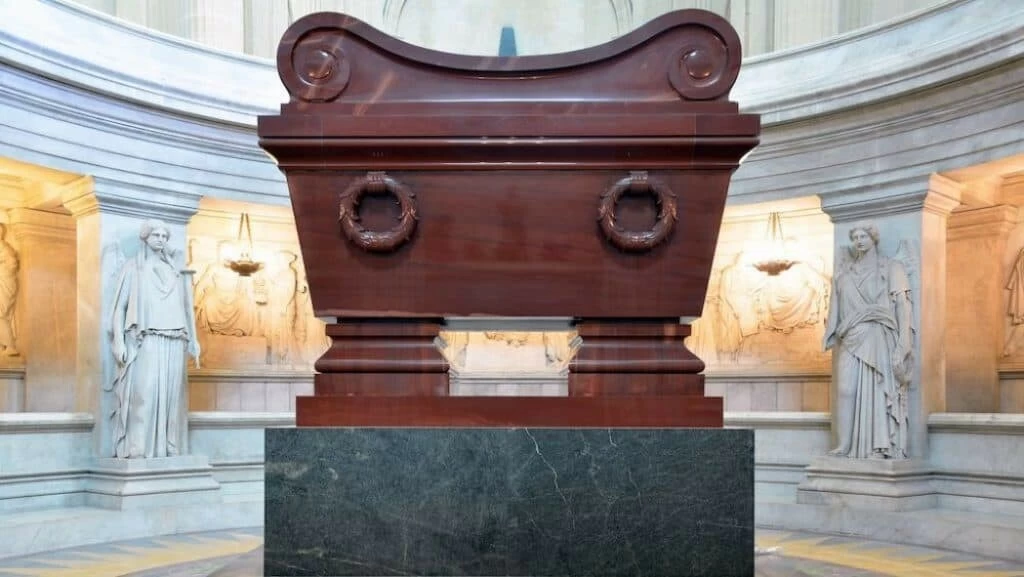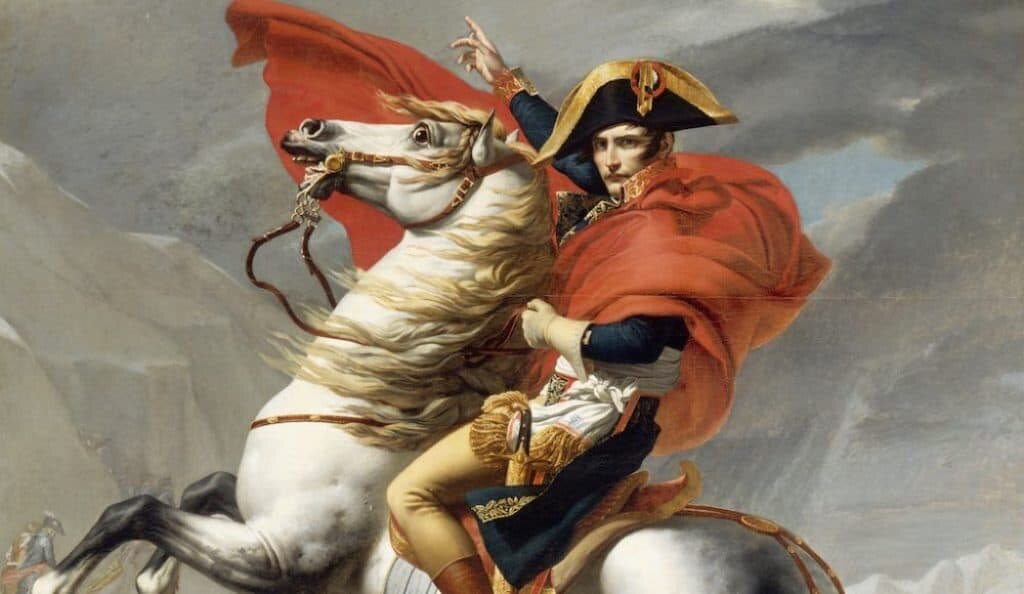The remains of Napoleon Bonaparte are in a massive sarcophagus in Les Invalides in Paris. Built in 1670 by King Louis XVI as a church, Les Invalides is a museum and burial place for military heroes. It seemed very appropriate that they interred Napoleon there. Tens of thousands of visitors, French and foreign alike, come to look at his sarcophagus each year. Although there are many heroes at rest in Les Invalides, most people call it the “Tomb of Napoleon Bonaparte.” What type of man is still able to command a following nearly 200 years after his death? Here are a few psychological observations of Napoleon Bonaparte that may answer that question.

Psychological Characteristics of Napoleon Bonaparte
What type of picture could a modern psychologist paint of this man? The ongoing debate questions whether Napoleon was a hero or a tyrant. Was he a great leader, a military genius, a savior? Was he a marvelous innovator, a statesman or something far less flattering? Like most great men in history, he was many things to many people. The psychology of Napoleon was complex, but we would like to discover the thin thread that ran through his personality to provide a more in-depth evaluation.
Highly Intelligent
Napoleon had a destiny, no question about it. There are many perspectives that determine this. A psychologist can make a contribution based on the modern science of his profession. This relatively new science strives to take into consideration developmental factors, familial and social ramifications, and a variety of other circumstances that often control our fate. A major aspect is intelligence, which is related to perception. It is believed that the more intelligent one might be, the wider their field of perceiving their world.

Ambitious and Driven
There is perhaps a reason to believe that Napoleon from childhood had exceedingly great aspirations. From a very modest set of circumstances, his needs exceeded his grasp. However, he was quite prepared to work hard and do whatever might have been necessary for him to satisfy his needs. Other than his intelligence and his drive, he didn’t have very much going for him. Additionally, he was neither tall, handsome, nor lovable. He did have leadership ability which manifested itself early in life, but no social skills to speak of. His success coincides with his persuasion and his dominance.
[blockquote align=”none” author=”Napoleon Bonaparte”]Impossible is a word only to be found in the dictionary of fools.[/blockquote]
Controlling
The average person shies away from confrontation and will give way to a more assertive person most of the time. However, Napoleon was assertive and controlling. This is evident throughout his life. Psychological observations of Napoleon Bonaparte indicate that he was self-serving, often disloyal, unreliable, greedy, and unscrupulous. Hence, it appeared that he had little feelings for his fellow man. He demanded complete obedience from anyone associated with him. He structured his logical processes to meet his desires. Drive, ambition, and intelligence were the watchwords of Napoleon Bonaparte.
Psychopathological
From a modern-day psychological point of view, Napoleon Bonaparte was a psychopath. This type of person has a great tolerance for stress and anxiety. Where more rational individuals would be very cautious, Napoleon had no manifestation of fear. Was he a true military genius? He was intelligent, he could read people, and he envisioned outcomes. His limited anxiety enabled him to take rash action and overwhelm his enemies.

This worked very well with the Austrians but failed in the face of Lord Nelson, Wellington, and the Russian winters. You can take denial just so far and reality will catch up with you.
Disloyal
He did many things to illustrate his disloyalty. When the British Navy left him stranded in Egypt, he had no hesitation in abandoning his troops and returning to France. When previously faced with the need to feed thousands of war prisoners, he had no compunction for killing them. This was Napoleonic logic. When the cold became unbearable for him on the long march to Moscow, again, he abandoned his men and went back to Paris.
Charismatic
When he went into exile to the small island of Elba after the British defeated him, he continued to demand that fate intervene on his behalf. He determined that he would return to France, form another army and regain his power base. He involved himself in a gigantic letter-writing campaign. It wasn’t as if he had an army of true and loyal friends. But he knew how to convince people that he could be their savior, and he tried to convince people that they could personally profit if they helped him. He was also able to persuade masses of people on his march to Paris. Just as the Germans were looking for a leader in the 1930s, so were the French crying out for leadership after the French revolution.
You May Also Like: The Sexiness of Stink: Was Napoleon Right About Body Odor?
When times are hard for any nation at any time in history, young men found a home in the military. Napoleon Bonaparte had no trouble in mustering forces. It ultimately came down to Napoleon or Wellington. The British were fighting for a cause. They were not so much in fear of the French army as they were in mortal fear of a revolution: a peasant’s revolt. They were prepared to defeat this concept at any cost. Napoleon, on the other hand, was fighting for the continued aggrandizement of Napoleon. He had made himself Emperor regardless of the feelings or support of the French people, the church or Beethoven for that matter.
Anal Retentive
Now some say the Duke of Wellington was a military genius. Therefore, he was very diligent in his preparation for battle. He long pondered what would happen before the first shot was fired. Napoleon and his reality blindness had no doubts about the outcome based on his psychopathology. The battle started late because Napoleon overslept. His hemorrhoids were giving him trouble. In our present study of psychosomatic illnesses where a person does not manifest external stress, there is often an internalization of psychological affect. What Freud called an anal-retentive personality (modern slang would call “ a tight ass,”) refers to a person often hard to get along with. Someone with this psychological makeup, who may be demanding and selfish, often suffers from this medical condition.
Napoleon’s Enduring Popularity
On Santa Helena, Napoleon never changed or faced reality. He continued to believe that the French people loved him and would come to his rescue. The British wardens would address him as General Bonaparte while he constantly demanded that they see him as Emperor Napoleon.
For many years during the rule of Francisco Franco, the iron dictator of Spain, conditions for the Spanish people were good. They were self-sufficient and self-sustaining. The same thing can be said of their neighbor, the Portuguese, under the dictator Salazar. Throughout history, for some reason, the masses have needed to follow a strong leader, psychopath or not. Napoleon fits this bill perfectly. Although the psychological observations of Napoleon Bonaparte are not all positive, the French will always consider him as the greatest Frenchman who ever lived.